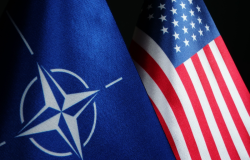A New Trade Policy for the United States: Lessons from Latin America
A group of experts – former trade negotiators, analysts and scholars – discussed how Latin America's experience in negotiating and implement FTAs can inform a new U.S. trade policy.
Overview
Critics and advocates of U.S. trade policies have disagreed over the effects of free trade agreements (FTAs), including such issues as net job losses or gains in the United States, the relative benefits accruing to companies and workers, and the impact of FTAs on labor and environmental conditions throughout Latin America. Latin American countries, meanwhile, have acquired significant experience in negotiating, ratifying, implementing, and evaluating the consequences of FTAs. This experience may provide important lessons for advancing the trade agenda and building stronger partnerships for growth. "A New Trade Policy for the United States: Lessons from Latin America," brought together a group of experts – former trade negotiators, analysts and scholars – to discuss how Latin America's experience in negotiating and implement FTAs can inform a new U.S. trade policy.
 Javier Gamboa, Vice-President of Colombia's Council on Competitiveness, a private sector organization, explained how a U.S.-Colombia FTA would enhance commercial relations between the two countries and reinforce longstanding linkages. He said that the delays in approval of an FTA signify that the United States is "losing" in Colombia, precisely during a global economic crisis the impact of which in Latin America has been small relative to advanced economies. Gamboa argued that the FTA offers investment and intellectual property guarantees that would not only help attract business, but could also support a productive transformation in Colombia's economy. He criticized political uses of trade policy, stating that critiques to the FTA regime in the United States are merely a scapegoat for dealing with competitive pressures in the global economy. He concluded by highlighting the efforts Colombia has made to address U.S. concerns over violence against union leaders, and stressing that the ultimate losers from defeat of the FTA are U.S. workers
Javier Gamboa, Vice-President of Colombia's Council on Competitiveness, a private sector organization, explained how a U.S.-Colombia FTA would enhance commercial relations between the two countries and reinforce longstanding linkages. He said that the delays in approval of an FTA signify that the United States is "losing" in Colombia, precisely during a global economic crisis the impact of which in Latin America has been small relative to advanced economies. Gamboa argued that the FTA offers investment and intellectual property guarantees that would not only help attract business, but could also support a productive transformation in Colombia's economy. He criticized political uses of trade policy, stating that critiques to the FTA regime in the United States are merely a scapegoat for dealing with competitive pressures in the global economy. He concluded by highlighting the efforts Colombia has made to address U.S. concerns over violence against union leaders, and stressing that the ultimate losers from defeat of the FTA are U.S. workers
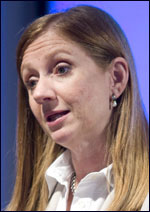 Anabel González, former Costa Rican Chief Negotiator for CAFTA, described that agreement as a multi-tiered negotiation involving coordination of a Central American regional position as well as a position vis-à-vis the United States. Once negotiated, legislative approval was controversial in all countries, but more so in Costa Rica, where it unleashed the most complicated political process in the history of the country. Implementation was another complex task, as signatories had to produce up to 13 pieces of legislation to modify institutions to conform to the terms of the agreement. For these reasons, González argued that there is no desire in Costa Rica to revisit CAFTA as part of trade policy reform in the United States. She stressed that Latin America needs to move beyond skepticism and engage the United States in partnership as the Obama administration debates trade reform.
Anabel González, former Costa Rican Chief Negotiator for CAFTA, described that agreement as a multi-tiered negotiation involving coordination of a Central American regional position as well as a position vis-à-vis the United States. Once negotiated, legislative approval was controversial in all countries, but more so in Costa Rica, where it unleashed the most complicated political process in the history of the country. Implementation was another complex task, as signatories had to produce up to 13 pieces of legislation to modify institutions to conform to the terms of the agreement. For these reasons, González argued that there is no desire in Costa Rica to revisit CAFTA as part of trade policy reform in the United States. She stressed that Latin America needs to move beyond skepticism and engage the United States in partnership as the Obama administration debates trade reform.
As the U.S. crafts a new policy towards Latin America, González explained that the United States can build partnerships with several countries in the region on the platform of its FTAs, especially with Central America. This can be achieved, she argued, by helping countries to fully implement the agreements through much needed technical assistance on a variety of fronts: labor, environmental management, customs, transparency and rule enforcement, technology transfers, and supply-side constraints like infrastructure deficiencies. This partnership should be extended to countries in the Caribbean, González argued, and consolidated by ratifying pending FTAs with Colombia and Panama.
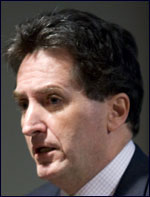 Pablo de la Flor, former Peruvian Vice-Minister of Commerce and Tourism and Chief Negotiator of the FTA with the United States, situated the U.S.-Peruvian FTA in the context of Peru's own trade reforms, relations with its neighbors and with the United States, and domestic political challenges. Peru sought an FTA with the United States to consolidate hitherto discretionary commercial preferences gained through the ATPDEA (Andean Trade Promotion and Drug Eradication Act). Because Peru had already implemented so many of the provisions the United States required of its preferential trading partners, de la Flor argued, Peru could advance faster in the conclusion of an FTA than its Andean neighbors. The Peru-U.S. FTA prompted multiple trade negotiations with other countries, consolidated a political and business coalition in support of free trade and market reforms, and acquired symbolic meaning in the public realm as evidence of Peru's future.
Pablo de la Flor, former Peruvian Vice-Minister of Commerce and Tourism and Chief Negotiator of the FTA with the United States, situated the U.S.-Peruvian FTA in the context of Peru's own trade reforms, relations with its neighbors and with the United States, and domestic political challenges. Peru sought an FTA with the United States to consolidate hitherto discretionary commercial preferences gained through the ATPDEA (Andean Trade Promotion and Drug Eradication Act). Because Peru had already implemented so many of the provisions the United States required of its preferential trading partners, de la Flor argued, Peru could advance faster in the conclusion of an FTA than its Andean neighbors. The Peru-U.S. FTA prompted multiple trade negotiations with other countries, consolidated a political and business coalition in support of free trade and market reforms, and acquired symbolic meaning in the public realm as evidence of Peru's future.
De la Flor acknowledged the difficulty of working through labor and environmental issues in the FTA. He noted that, contrary to public perceptions, Peru's case is actually one of excessive labor regulation that builds rigidities into the labor market. Since most exporting firms already comply with U.S. labor standards, additional regulations resulting from the FTA could give further incentives for hiring in the informal sector rather than the formal economy.
The challenge for Peru now is implementation and management of the FTA. De la Flor acknowledged that Peruvian officials did not pay sufficient attention to implementation as they were negotiating the agreement. He also observed that the country does not have the institutional capabilities to successfully carry out the FTA's many stipulations.
Reflecting on his country's experience in the implementation of the Central America Free Trade Agreement (CAFTA), 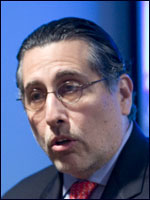 Mario Arana, former Nicaraguan Minister of the Economy, explained that while the United States has emerged as the winner in trade with Central America, numbers do not tell the whole story. Nicaragua has seen an increase in overall trade but also a deficit with the United States. Increases in investment have offset losses, but the picture is uneven. Costs for protecting consumers have also come down, according to Arana, and the agreement has helped in the consolidation of institutions and of rules of the game.
Mario Arana, former Nicaraguan Minister of the Economy, explained that while the United States has emerged as the winner in trade with Central America, numbers do not tell the whole story. Nicaragua has seen an increase in overall trade but also a deficit with the United States. Increases in investment have offset losses, but the picture is uneven. Costs for protecting consumers have also come down, according to Arana, and the agreement has helped in the consolidation of institutions and of rules of the game.
Arana highlighted the concern in Central America over the possible direction of U.S. trade policy under the Obama administration. He warned against the shortsightedness of protectionism and suggested the United States focus on harmonizing its existing free trade agreements as well as supporting multilateral trade liberalization. While enforcement of labor and environmental standards would benefit countries like Nicaragua, Arana noted that full advantage of these regulations can only come if labor displacements, some not associated to trade, are also addressed.
In a critical assessment of current U.S. trade policies in Latin America, Stephen Lande, President of Manchester Trade LTD, questioned why the United States would want to "shoot itself in the foot" by not approving pending trade agreements negotiated under a template dictated by the United States. He also questioned why the United States would sign small trade agreements with many countries, a pattern he ascribed to the serious political divide on trade policy that emerged over the North American Free Trade Agreement (NAFTA): Mexico had been interested in including such controversial topics as migration, subsidies, and dumping laws, issues that were taken off the negotiating table.
Lande worried that entrenched partisan divisions over trade policy can be dangerous to the nation's best interests. A trade preference system that allows the United States to unilaterally impose sanctions on trading partners has given politicians a false sense of what should be worked into a trade agreement, he contended. This, in turn, has made certain topics (like labor and the environment) captive of issue-oriented groups, when there is no consensus over the desirability of some of these issues in trade agreements. Lande suggested a pause in trade negotiations to build a new political consensus on the basis of the FTAs the United States currently has concluded and implemented.
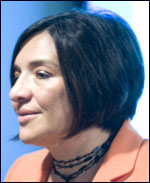 On the controversial subject of labor and trade agreements, Isabel Studer of the Instituto Tecnológico de Monterrey explained how International Labor Organization (ILO) standards have assumed a key role in trade agreements. ILO standards are guidelines and principles concerning labor rights that leave the practical question of implementation to domestic law and politics. However, in NAFTA, the ILO faced an unprecedented jurisdictional question when internationally-sanctioned labor standards were included in an FTA. Studer raised the question of whether trade agreements are a proper mechanism to introduce and enforce labor standards. She explained that in the case of NAALC (the North American Agreement on Labor Cooperation, a side agreement to NAFTA) there were severe problems in designing sanctions for labor violations as part of the dispute resolution system. However, since the conclusion of Chile's FTA, such problems no longer exist. In fact, labor requirements in trade agreements are being made ever more stringent. Nevertheless, in the case of NAFTA, the NAALC does not set labor standards for North America, but mainly enforces existing standards.
On the controversial subject of labor and trade agreements, Isabel Studer of the Instituto Tecnológico de Monterrey explained how International Labor Organization (ILO) standards have assumed a key role in trade agreements. ILO standards are guidelines and principles concerning labor rights that leave the practical question of implementation to domestic law and politics. However, in NAFTA, the ILO faced an unprecedented jurisdictional question when internationally-sanctioned labor standards were included in an FTA. Studer raised the question of whether trade agreements are a proper mechanism to introduce and enforce labor standards. She explained that in the case of NAALC (the North American Agreement on Labor Cooperation, a side agreement to NAFTA) there were severe problems in designing sanctions for labor violations as part of the dispute resolution system. However, since the conclusion of Chile's FTA, such problems no longer exist. In fact, labor requirements in trade agreements are being made ever more stringent. Nevertheless, in the case of NAFTA, the NAALC does not set labor standards for North America, but mainly enforces existing standards.
In Studer's view, a trade agreement cannot supersede decades of domestic political compromise over labor standards that are shaped by multiple factors involving technology, economic development, and other political bargains. She continued to say that regional standards should be an aspiration. But much more needs to occur outside of trade policy before such aspirations can become reality. Needed changes include capacity building as a complement to labor monitoring efforts and the more active participation of civil society.
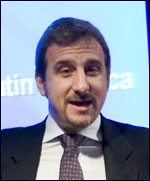 Turning to the question of trade and poverty, Paolo Giordano of the Inter-American Development Bank argued that debates over the distributive impact of trade on the poor have generated a level of popular anxiety in Latin America that is eroding the region's consensus for commercial integration. Similarly, in the developed world, these questions have led to a perception that trade should do more for the poor. After making several important distinctions between free trade and globalization and between poverty and inequality, Giordano explained that the application of standard trade theory to the transmission channels between trade and poverty yields results inconsistent with data. He cited a variety of reasons for these inconsistencies, including infrastructure deficiencies, public over-reliance on tariff revenue, and labor rigidities and adjustment costs, among others. Yet Giordano acknowledged that protectionism has a regressive impact on the poor.
Turning to the question of trade and poverty, Paolo Giordano of the Inter-American Development Bank argued that debates over the distributive impact of trade on the poor have generated a level of popular anxiety in Latin America that is eroding the region's consensus for commercial integration. Similarly, in the developed world, these questions have led to a perception that trade should do more for the poor. After making several important distinctions between free trade and globalization and between poverty and inequality, Giordano explained that the application of standard trade theory to the transmission channels between trade and poverty yields results inconsistent with data. He cited a variety of reasons for these inconsistencies, including infrastructure deficiencies, public over-reliance on tariff revenue, and labor rigidities and adjustment costs, among others. Yet Giordano acknowledged that protectionism has a regressive impact on the poor.
Because FTAs liberalize trade in phases, with the most sensitive products opened in the span of ten to twenty years, the real question according to Giordano is whether governments have the political will and capacity to use this lead time to prepare for the eventual shock of full liberalization. Other impacts of FTAs, especially on development, also take a long time to materialize, and so require governments to follow negotiations with capacity-building policies in order to reap the rewards from trade. Giordano thus emphasized the need to situate trade at the center of a development agenda; that is, to maintain the momentum of trade liberalization by engaging a complimentary, long-term domestic agenda. In this regard Giordano suggested the important role the United States could play, by putting such capacity-building into a wider hemispheric cooperation agenda that can finance the very policies that are needed to invigorate the trade agenda and reduce inequality.
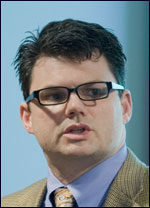 Kevin Gallagher of the Global Development and Environment Institute at Tufts University discussed the extent to which environmental issues can be inserted as part of trade agreements. In economic terms, pollution can be offset by shifting productive activity toward sectors that are less pollution-intensive. Trade liberalization helps this process by creating incentives that can spur technological advances to help reduce pollution. Yet winners and losers on trade and environment can be different than those in trade and growth, thus creating a complicated structure of incentives and preferences in trade policy outcomes.
Kevin Gallagher of the Global Development and Environment Institute at Tufts University discussed the extent to which environmental issues can be inserted as part of trade agreements. In economic terms, pollution can be offset by shifting productive activity toward sectors that are less pollution-intensive. Trade liberalization helps this process by creating incentives that can spur technological advances to help reduce pollution. Yet winners and losers on trade and environment can be different than those in trade and growth, thus creating a complicated structure of incentives and preferences in trade policy outcomes.
Analyzing the case of Mexico and NAFTA, Gallagher noted that environmental technology transfers took place as a result of foreign direct investment flows after the agreement was concluded. However, the pace of environmental degradation in Mexico has increased and its costs are equivalent to 10 percent of annual GDP. Meanwhile, biological and genetic diversity in the country has been threatened.
Gallagher suggested improvements in the ways that environmental concerns are included in U.S. trade policy. With respect to the environmental clauses in FTAs, Gallagher stated that the current regime distorts expert panels in favor of trade lawyers rather than scientists. He noted how such clauses posit environmental issues in a way that makes violations punishable through trade sanctions, as in the Peru and CAFTA agreements. Gallagher argued this is a skewed system that fosters investor-to-investor bargains and weakens state-to-state negotiation. He also suggested that the United States should not design intellectual property rules in FTAs that block technology transfer of clean technologies, 90 percent of which are in developed countries.
Documents & Downloads
- A New Trade Policy for the United States: Lessons from Latin AmericaDownload
- A New Trade Policy for the United States: Lessons from Latin AmericaDownload
- A New Trade Policy for the United States: Lessons from Latin AmericaDownload
- A New Trade Policy for the United States: Lessons from Latin AmericaDownload
- A New Trade Policy for the United States: Lessons from Latin AmericaDownload
- A New Trade Policy for the United States: Lessons from Latin AmericaDownload
- A New Trade Policy for the United States: Lessons from Latin AmericaDownload
- A New Trade Policy for the United States: Lessons from Latin AmericaDownload
- A New Trade Policy for the United States: Lessons from Latin AmericaDownload
Hosted By

Latin America Program
The Wilson Center’s prestigious Latin America Program provides non-partisan expertise to a broad community of decision makers in the United States and Latin America on critical policy issues facing the Hemisphere. The Program provides insightful and actionable research for policymakers, private sector leaders, journalists, and public intellectuals in the United States and Latin America. To bridge the gap between scholarship and policy action, it fosters new inquiry, sponsors high-level public and private meetings among multiple stakeholders, and explores policy options to improve outcomes for citizens throughout the Americas. Drawing on the Wilson Center’s strength as the nation’s key non-partisan policy forum, the Program serves as a trusted source of analysis and a vital point of contact between the worlds of scholarship and action. Read more
Thank you for your interest in this event. Please send any feedback or questions to our Events staff.










